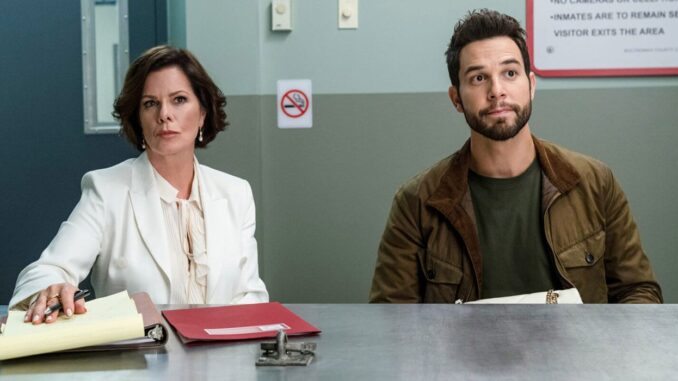
The news hit like a gentle, yet undeniable, thud. For fans of So Help Me Todd, the cancellation wasn't a shock in the seismic sense, but more akin to finding a beloved, comfortable sweater had finally worn through at the elbows. It was a show that carved out a niche: a quirky, intergenerational legal dramedy that offered warmth and wit in a television landscape often dominated by gritty realism or high-concept spectacle. When a show like that is pulled, the question inevitably arises: Why?
Imagine the creator, let's call her Amelia Thorne, sitting in a quiet office, the glow of a computer screen illuminating a wall filled with character sketches, episode outlines, and even a framed photo of the cast laughing on set. The public statement was polite, professional, boilerplate. But her internal monologue, the true "reveal," is far more nuanced, a tapestry woven from passion, pragmatism, and the relentless, unforgiving economics of network television.
"It was born of a simple, potent alchemy," Amelia might reflect, gesturing vaguely towards the character sketches. "A brilliant, overbearing mother, a charmingly chaotic son, both navigating the legal world and their own complicated relationship. We wanted to create something that felt familiar, like comfort food for the soul, but with enough snap and sparkle to keep it fresh. Marcia Gay Harden and Skylar Astin, their chemistry was just… magic. They elevated every line, every glance."
And for a time, it flourished. So Help Me Todd wasn't a ratings juggernaut, no, but it was a consistent performer. It held its own, providing a dependable audience with an hour of intelligent escapism. It was the reliable workhorse of the schedule, a show that people genuinely enjoyed. Fan mail, social media buzz, the small but vocal community that adored the show – these were the heartbeats Amelia felt every day. This wasn't a show that failed to connect; it connected precisely as it intended, with its chosen audience.
"But the numbers," Amelia sighs, rubbing her temples, "the numbers are a harsh mistress. And 'dependable' is a double-edged sword in today's landscape. We weren't a show that launched a thousand think pieces or broke the internet with viral moments. We were a show that people settled into, week after week. And that, paradoxically, became our undoing."
The "why," Amelia explains, isn't about quality. "It wasn't a critique of the show's writing, or the performances, or even the audience's loyalty. It was about scale and perception. In an era where streaming services are constantly looking for the 'next big thing' that will drive subscriptions, and linear networks are fighting for every sliver of attention, a show needs to either be a massive, undeniable hit, or incredibly cheap to produce."
So Help Me Todd was neither. It had a stellar cast, production values befitting a network drama, and a dedicated writing team. It wasn't exorbitant, but it wasn't a shoestring operation either. "We were in the middle," Amelia clarifies. "Solid ratings, but not explosive. Respectable viewership, but not the kind that generates headlines. And for the networks, who are constantly looking for a 'home run' to justify their advertising rates and attract a younger demographic, a consistent 'double' sometimes just isn't enough."
She leans back, a wistful smile touching her lips. "They're chasing a different kind of metric now. They're looking for shows that dominate the social media conversation, shows that can be spun off into multiple iterations, shows that scream 'event television.' We were a delightful weekly visit, a comfort, a reliable friend. And sometimes, in the relentless pursuit of the next big sensation, those quiet, steady friendships get overlooked."
The decision, she knows, wasn't personal. It was a business calculation, a strategic move by the network to free up a slot for something they hoped would resonate more loudly, more broadly, or more youthfully. It was a gamble on the unknown, a shedding of the dependable in pursuit of the potentially spectacular.
"To call it 'disappointing' would be an understatement," Amelia confesses, her voice softening. "You pour years of your life, your heart, your creative energy into something. You watch it grow, you see the joy it brings to people. And then, for reasons that are entirely logical from a corporate standpoint but utterly heartbreaking from an artistic one, it's over."
The creator reveals why So Help Me Todd was cancelled not with anger, but with a profound understanding of the shifting tides of an industry that values novelty and explosive growth over quiet, consistent charm. It was cancelled not for being bad, but for being too… good in the wrong way for the current market. It was a show that did exactly what it set out to do, found its audience, and delivered on its promise. But in the ruthless calculus of modern television, sometimes, even that isn't enough to save a show from the gentle, undeniable thud of cancellation. And in that quiet office, Amelia Thorne knows that all too well.
